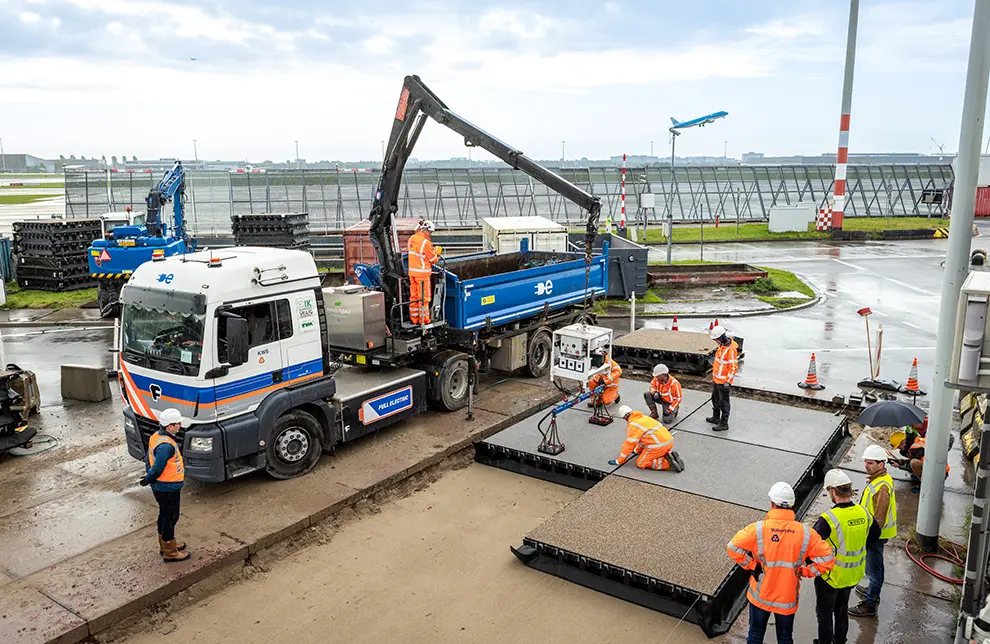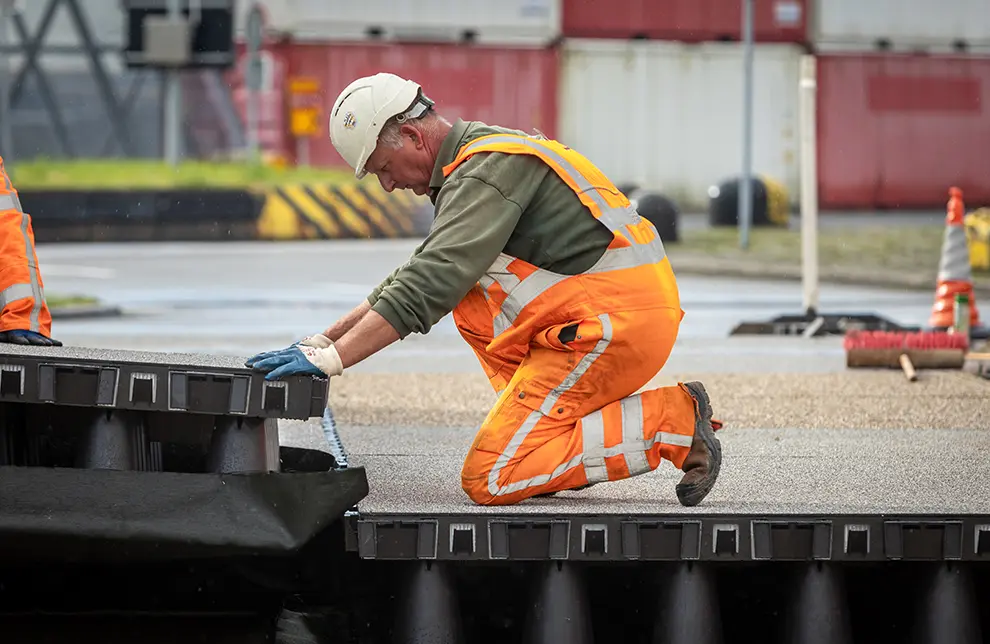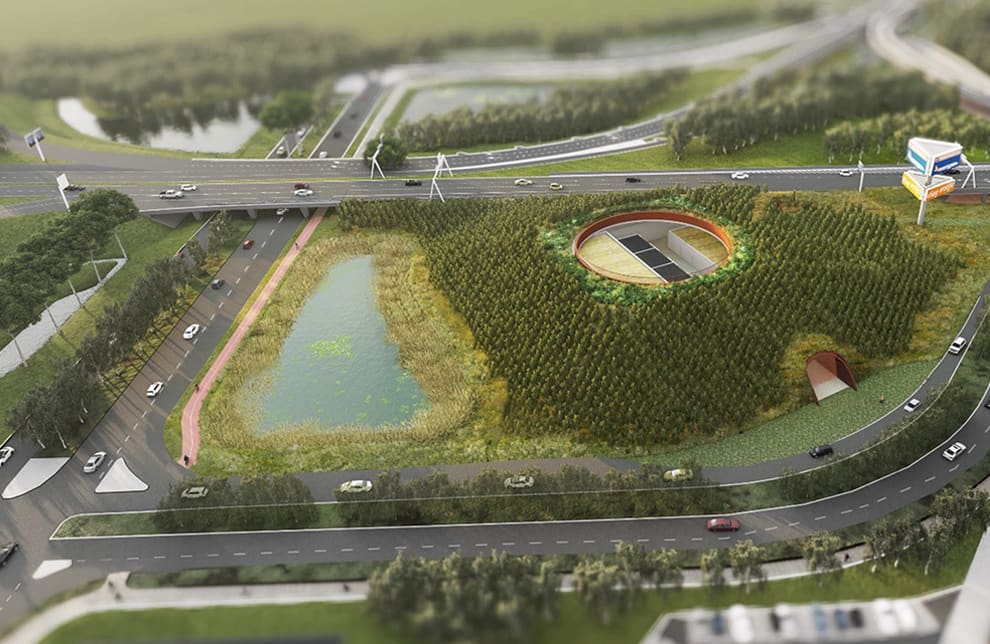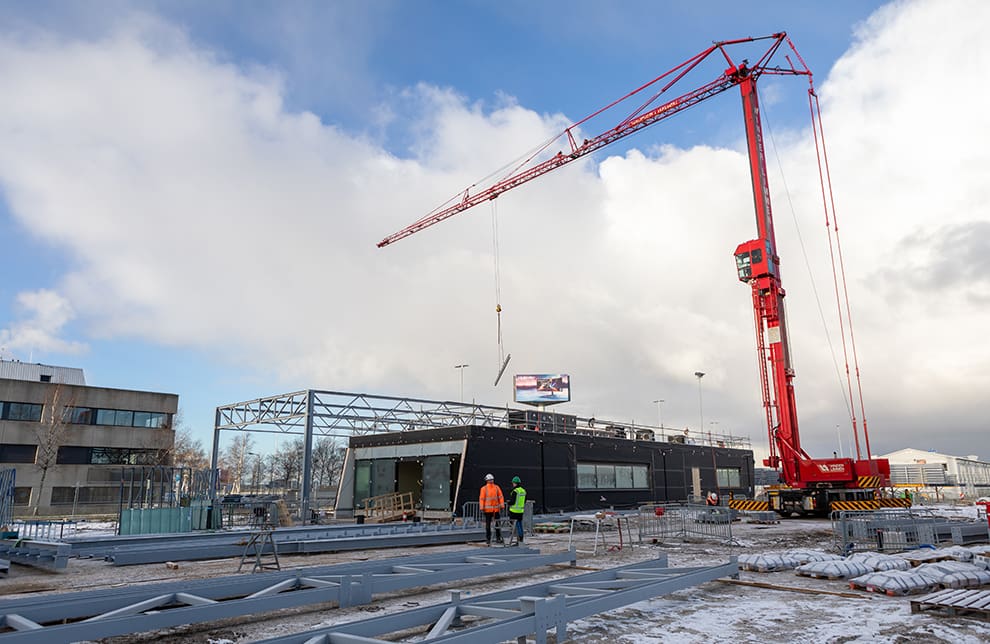Road surface made of recycled plastic: New road made of recycled plastic opens
Schiphol is testing whether roads made of plastic could offer a good alternative to asphalt and concrete. Part of the platform’s road surface has been replaced with plastic, and a second stretch, along a runway, will follow in late 2023. The new surface is made of the airport’s own plastic waste. Schiphol is the first airport in the world to use sustainably sourced plastic as a paving material.

Sustainability benefits
The new plastic road has the same driving characteristics as asphalt, and it has been finished off with a thin top layer of crushed stone to make it wear-resistant. This also ensures that the new surface does not become too slippery during rainy weather.
The road offers multiple sustainability benefits:
- Schiphol’s own plastic waste is given a second life at the airport;
- it is easier to maintain than traditional roads;
- it has a longer design life;
- it is quicker and easier to build. This leads to CO2, NOx and particulate matter reductions.

Better and more natural water management
The plastic road also contributes to better and more natural water management at Schiphol. A special system in the road surface collects rainwater, filters it and gradually allows it to sink into the ground. The system also provides a water buffer during heavy rainfall, contributes to improved groundwater levels and filters out traffic pollution, preventing it from entering the ground along the road or the infiltration system.
Plastic road part of Schiphol’s push for more sustainable infrastructure
The plastic road is part of a wider, ongoing push to make Schiphol’s infrastructure more sustainable. Wherever it can, Schiphol uses circular demolition practices, and almost 70% of all demolition materials are reused at the airport. A more sustainable infrastructure will contribute to Schiphol’s goal of becoming a waste-free and emission-free airport by 2030.
One-year pilot
The plastic road pilot will run for one year. This will give us a good sense of how the plastic road surface performs under heavy use. We will also measure wear, maintenance sensitivity and general road surface quality, just like we do with our other roads. If the pilot is a success, Schiphol intends to build more airport roads using this type of surface in the future. Schiphol is conducting the pilot together with PlasticRoad, PreZero and VolkerWessels Infra Schiphol.
Read the previous blogs
-
Special high-voltage substation
Published on:New high-voltage substation contributes to one of Schiphol’s most significant sustainability goals: zero emissions in 2030.

-
More electric equipment
Published on:Most diesel generators have now been replaced by electric ones. Schiphol provides almost all planes parked at the gate with electrical power.

-
Start construction circular checkpoint
Published on:For the new checkpoint we are using material left over after the demolition of three office buildings and three cargo buildings at Schiphol.
